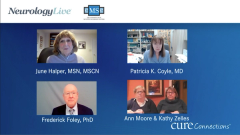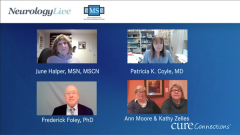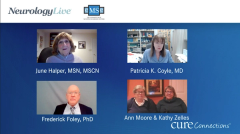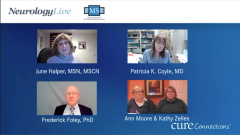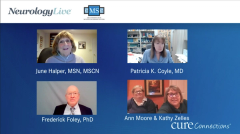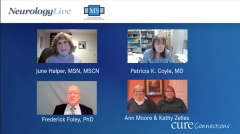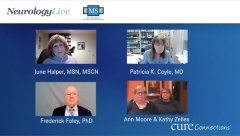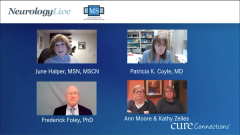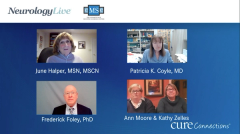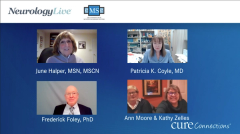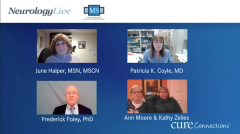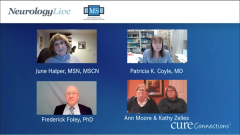
Treatment Options Available for Multiple Sclerosis

Episodes in this series

An expert neurologist frames the conversation she has with patients who are newly diagnosed with multiple sclerosis about therapy options.
June Halper, MSN, MSCN: Dr. Coyle, what is your conversation with a newly diagnosed person? How do you approach that subject, or do you bring other people in to discuss it? I know that you have such a large practice in such a large center. Do you have different strategies or is there a general strategy on disclosing? Not over the phone, I assume.
Patricia K. Coyle, MD: No, no. I am a big proponent of treatment and treating early. I am personally engaged in that because, quite frankly, I don’t think anybody can talk to it better than I can. I don’t like to delegate it at all. The conversation is a little bit different for relapsing MS [multiple sclerosis] where we have multiple options versus primary progressive MS where we only have one disease-modifying therapy. If you really think about it, we have 25 distinct medications. I’m counting generics at the current time. That’s unbelievable. You can’t possibly cover that.
I’ve put them into groups or buckets. I talk about the needle injectables, the interferon betas and glatiramer acetate, the nine oral drugs, and the high efficacy monoclonal agents, which are largely intravenous, and one subcutaneous. I will introduce those three groups and I will talk about the pros and cons of each of those groups, and then shared decision making with the individual. We’re going to talk about what are the most important things for them and come up with a recommendation. We’re going to focus on one of those groups and then I will begin to go into details with regard to the individual medications.
I discuss current concepts on efficacy because the efficacy is not the same with our disease-modifying therapy. I also discuss whether this has been flagged as a medication that needs to have special monitoring. Is it immunosuppressive? Are we purely talking about an immunomodulatory drug? We have a discussion about what will need to be monitored and followed because in shared decision making, you need buy in of the individual. They’re the ones that ultimately are taking the medication. And I will make recommendations absolutely because that’s what an expert is supposed to do.
June Halper, MSN, MSCN: Right.
Patricia K. Coyle, MD: But we are making a joint decision. I think knowledge is power, knowledge is power, and I am very strong on recommending treatment as early as possible.
June Halper, MSN, MSCN: We met earlier today, and we were talking. I was shocked to see one of our throwaway magazines that’s not a medical magazine has advertisements for MS drugs. There’s one of the drugs is actually advertised on TV. How do you overcome something like that where somebody walks in and says, “I saw this in a magazine. It sounds perfect for me. Can I please start this?”
Patricia K. Coyle, MD: Personally, I find it a little bit disconcerting to see advertisements for MS disease-modifying therapies, but that is life. As the expert, I want the patient, there needs to be full flow of communication. They’re going to ask me questions and I’m going to give them my very honest opinion and take on it. I try to be as informed as possible, so I’m never locked into an opinion. I draw an opinion based on the best data, and if new data comes in, then my opinion may change somewhat. But I’ll certainly be very candid when the patients bring up specific agents that they may be interested in.
June Halper, MSN, MSCN: I want to thank you all for watching and joining us at this NeurologyLive® Cure Connections®. If you enjoyed this program, please subscribe to the e-newsletter to receive upcoming information about other programs. I’d like to thank you all for the time and I thank you all for this wonderful opportunity and hope to see you all again.
Newsletter
Keep your finger on the pulse of neurology—subscribe to NeurologyLive for expert interviews, new data, and breakthrough treatment updates.

